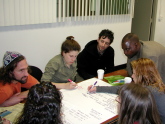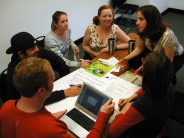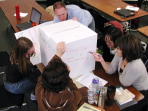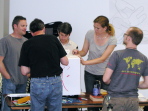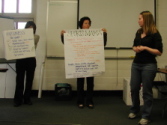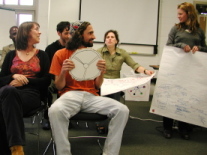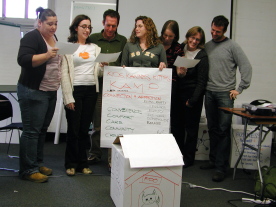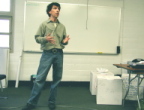If I Could Do It Again....
/“To learn is to change. Education is a process that changes the learner... Learning involves interaction between the learner and his environment, and its effectiveness relates to the frequency, variety and intensity of the interaction. Education, at best is ecstatic.” George Leonard, Education and Ecstasy, 1976
I read Leonard's book in 1976 and knew it would become a classic. He made strong points about what education could and should be. I was considered a forerunner in education having opened one of the most creative and innovative Teacher Center's in the country. I was given awards and invited to speak at large teacher associations and conferences. The Learning Exchange that I helped to create engaged with exemplary teachers throughout the greater Kansas City Area to create curriculum that the cummunity felt was lacking in the area schools. I thought a lot about the 21st century and wondered what young people would need to learn in the 20th century that would help them be fit in the 21st century. I regaled against the "sit-and-get" way of learning and the LX became well known for project-based learning and for making collaboration, design, and exploration seem natural ways of learning, even for adults.
In 1978, my husband, Matt, and I started teaching a course together for students and adults called TOOLS (Time of Our Life Seminars). We created an outline curriculum for the 21st Century. Our course was intense explorations into the future, engaging the personal, organizational, and world views of each participant. And yet, and yet, as I now live in the 21st century ... as I see the changes that have occurred in just one generation -- 30 years or so -- there is so much I wish I had offered that I did not even think about then. I took so many things for granted.


